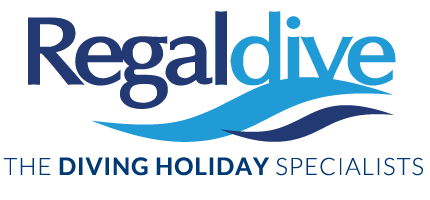- More More
- Blog
- Inspire me
- Groups
- Offers More
- Dive Courses More
- Liveaboards
More

Liveaboard Trips
On-board accommodation offering the opportunity to live right over the dive sites and to experience secluded dives...
Diving regions...
- LATEST AVAILABILITY BY REGION
- Red Sea availability
- Maldives availability
- Indonesian availability
- Socorro Mexico availability
- Galapagos availability
- ALL LIVEABOARD DIVING REGIONS
- Bahamas
- Bikini Atoll
- Caribbean
- Cocos Island
- Destinations
MoreDIVING REGIONS...
Our Top destinations....Why not try....
Find a trip
- Resort
- Liveaboard
Frequently Asked Questions for Newly Qualified Divers

5 Aug 2024, Phil North
Just qualified as a diver and wondering what to do next? We've compiled a list of frequently asked questions to help newly qualified divers build confidence and take the next steps in their underwater journey.
Congratulations on becoming a certified diver! You now have access to an exciting underwater world. At Regaldive, we understand that it can seem a little daunting when you first qualify, and so we are here to offer you a helping hand and will continue to support you for as long as you need it. Remember, you're not alone, and on this page you will find guidance and a selection of common questions that other newly qualified divers have asked us.
Click on the questions below to be taken straight to the answers and advice.
- I have just passed my diving course and I want to go on a diving holiday - what is a diving holiday?
- How do I know where to go? There is so much choice...
- When I learnt to dive I was with a 'buddy' - now I am on my own. How can I go diving on my own?
- I am qualified to dive in a buddy team, but I do not want to be on our own in the water yet. What do I do?
- What if I end up with a 'gung-ho' diver and I do not feel comfortable?
- Everyone is so experienced...I find it a bit daunting.
- Where can I find out more at my own pace, without any pressure around me?
- During my course, I had all of my equipment given to me. At the moment, I do not own anything - what shall I do?
- On the subject of dive shops, there is a club near me, but is it a different club to the one I did my diving with ( i.e. PADI / BSAC / SSAC ) - can I join them?
- What if I do not manage to dive again for a while?
- Why do I need to reserve my diving in advance? Surely I can just turn up?
- What is the difference between shore diving and boat diving?
- What is a liveaboard?
- I've just qualified and want to do a liveaboard/dive some more 'challenging sites'
- I have a few dives now, and have done a little more training and want to book a liveaboard, but I am on my own. Do I get the cabin to myself?
- I'm concerned about my impact on the environment and want to be a 'green' diver? What can I do?
- I want to do some more courses, but have not got time to do all the ones I think I need. Which one is the best one?
1. I have just passed my diving course and I want to go on a diving holiday - what is a diving holiday?
Regaldive has set up its trips based around the areas of the world that offer exciting places to dive, usually in fairly warm water, although cold water destinations also offer some amazing dive experiences. As a specialist dive tour operator, we can assist you in choosing where to go, arrange your flights, book you suitable accommodation, advise you on travel dive insurance, have someone meet you at the airport when you arrive, transport you to your place of stay and prebook your pleasure diving or dive course so that the dive resort is expecting you. All this with your money being safe under our ATOL bond and knowing you have someone to rely on should things go wrong.
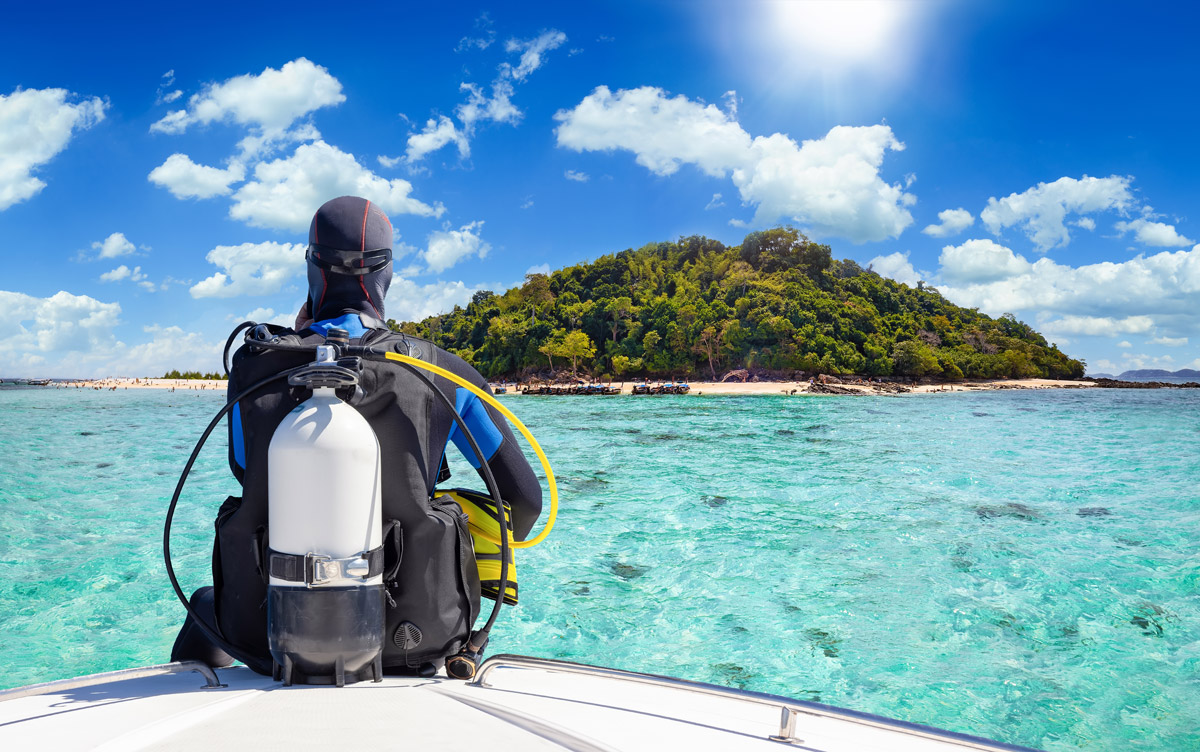
You may decide to do a further course or book some pleasure dives (dives without any study). Each resort and place in the world works their diving differently for many reasons such as weather patterns, number of guests, type of diving offered or local sea conditions, so the dive packs that you are able to pre-book in each resort may be different.
2. How do I know where to go? There is so much choice...
Firstly, you may want to approach this as you would in choosing any other holiday, by asking yourself what do you like? Do you like busy resorts with a choice of night time activities as well? Do you like to be able to do other activities as well as diving? Do you like remote destinations that push your comfort zone or do you like to have all your mod cons around you? Do you like having lots of people or do you prefer more intimate resorts?
Once you have decided this, in tandem with your dive qualification and dive experience, plus a guide of how much you would like to spend, we will do our best to find a holiday that ticks as many of your boxes as we can.
3. When I learnt to dive I was with a 'buddy' - now I am on my own. How can I go diving on my own?
Many divers travel and go on holiday on their own; it is a great way to meet people. When you start your diving on holiday, the dive resort and your guide for the day will pair you with another diver, and as best they can with someone of similar qualification, experience and air consumption. If there are odd numbers, you may end up pairing with your dive guide.
4. I am qualified to dive in a buddy team, but I do not want to be on our own in the water yet. What do I do?
For the majority of the dives that you ever do, unless you choose not to, you may follow the guide in the water to help you with navigation. You may not be right next to them, but in the water, on the same dive site, within view, so that you can easily locate them should you wish.
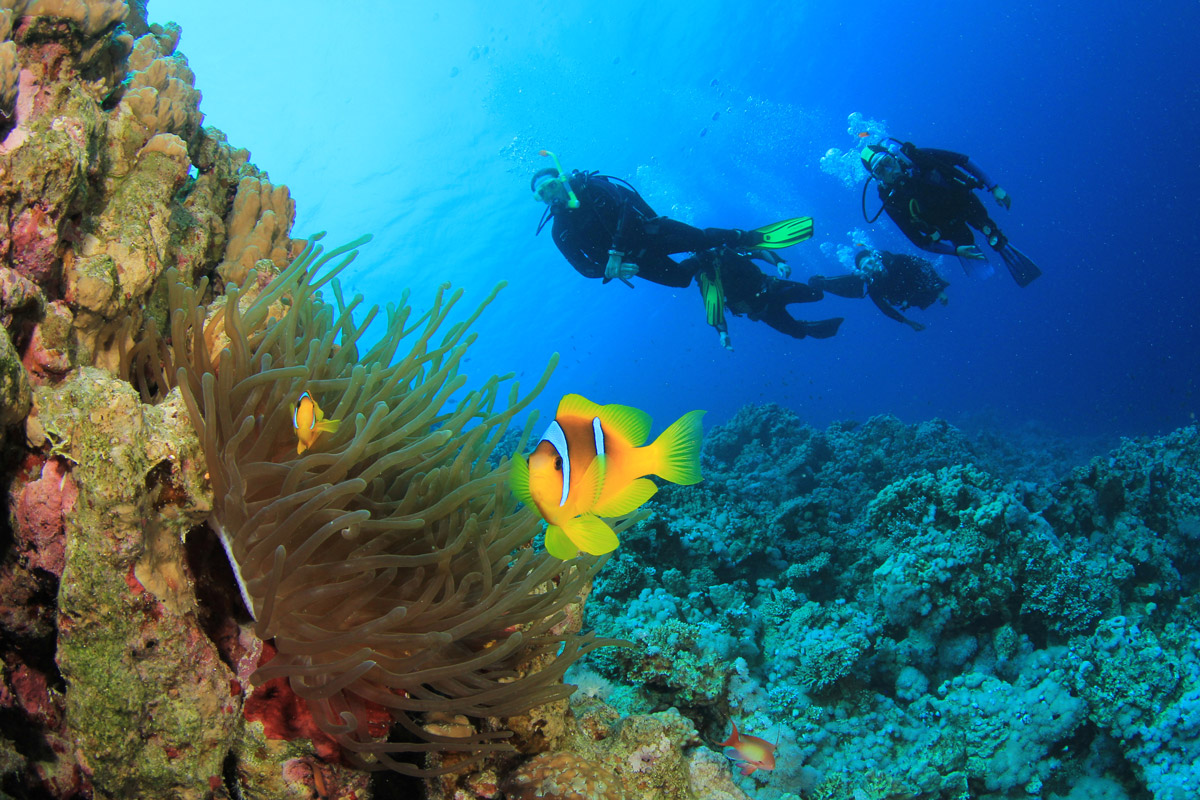
Circumstances according to each dive location will be different, but as a rule for divers without much experience, this is how the dive centres will want you to dive anyway, for your own safety. In many destinations you can hire a private guide at an additional cost.
However, please remember that you are responsible for you own dive and dive safety with your buddy when being guided and must not be afraid to speak up if you do not understand something or if something is unclear about the planned dive.
Also, accept that everyone at some point, no matter how experienced, will have 'bad' dives. For example, something as simple as ‘do not eat the garlic aubergine on Egyptian boats at lunchtime as I will pay for it for the rest of the day', to more serious problems. Usually an enormous amount is learnt from this one 'bad dive', than from 20 'good' dives.
5. What if I end up with a 'gung-ho' diver and I do not feel comfortable?
In any circumstances where you have any concerns about your diving or dive buddy, it is best speak to your dive guide. Many people dive for many different reasons, and sometimes a buddy mismatch can occur. There is usually a way to resolve this which your guide will be in the best position to do so.
6. Everyone is so experienced... I find it a bit daunting.
Do not forget that everyone started somewhere. Many times the success to a great day's diving is going with like minded people who have a healthy, safe and fun attitude to their diving, regardless of how many dives they have, how many qualifications they have and what necessary tools and gadgets they have hanging on them! This is the majority of divers and most are there to relax and see some great things underwater, just as you are. Divers are generally quite a sociable bunch and one of the best ways to learn is to spend more time with them!
7. Where can I find out more at my own pace, without any pressure around me?
A good idea is to pick up copies of diving magazines such as Scuba Diver and Scubaverse, available in most larger newsagents. These magazines offer something for everyone; you can learn more about equipment, what diving in the UK and abroad has to offer and many of your concerns and questions are covered in the advice and letters pages, plus many funny stories and a few sad ones too. You may also want to join an internet site such as Divernet; do remember however that the blogs offered on these sites may only offer opinions based on single personal experiences and do not always give the larger picture.
8. During my course, I had all of my equipment given to me but now I do not own anything - what shall I do?
All of the resorts we work with offer diving equipment for rent, which you may prefer until your have experience of a few more dives. You pay for your rental equipment in resort at the end of your diving. However, it may be a good idea to initially invest in a few key items such as mask, fins, wetsuit and dive computer which is more down to personal fit. Also, be prepared to make equipment 'mistakes', meaning that although a piece of equipment is perfectly good, it may just not suit your needs or body fit. People who have been diving for years still make the odd purchase which is not right for them.
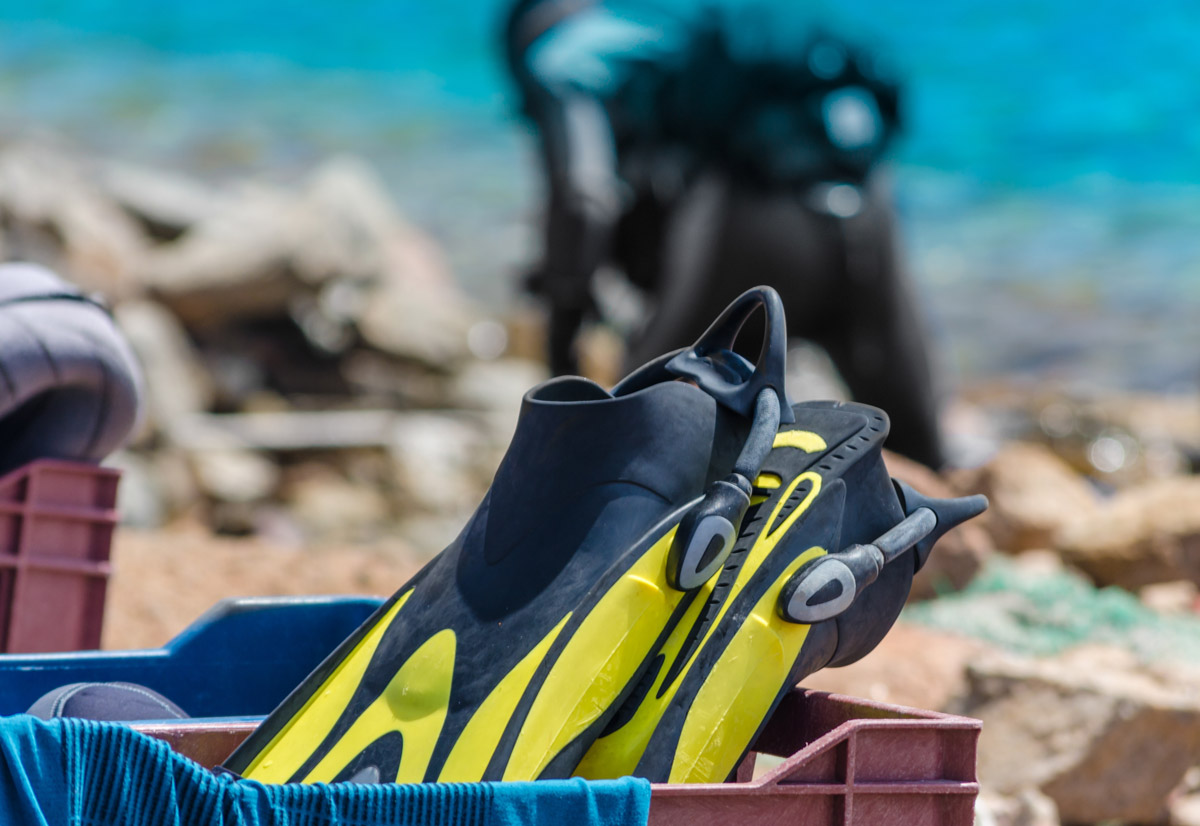
If you go along to a local dive store near your home town, with a quality shop, there are people there to help you make your purchasing decisions. Try not to be overwhelmed and do not be afraid to say you are a new diver and may just be seeking some guidance at this stage.
9. There is a club near me, but is it a different club to the one I did my diving with (i.e. PADI / BSAC / SCOTSAC) - can I join them?
All of the diving agencies have reciprocal agreements, which recognise your dive qualification as full or part credit towards their dive qualifications. Diving in different places and different regions can vary greatly, so you should always build your experience under similar environments to that in which you learnt, or seek further training and advice. For example, diving in cold water in the UK (cold water counts as anything 21 degrees or less) can bring around different considerations to diving in hot environments, which also have their own considerations.
Most clubs will be more than happy to chat with you about what they can offer, how they run their diving and training and what you may get out of it, to see if it suitable for you. Chances are if you like the people, you'll like the club.
10. What if I do not manage to dive again for a while?
Depending on the length of time you have not dived, your qualification and experience, will depend slightly on your best option; it is best to ask. In most cases if you have not dived for 6 - 12 months, divers will need to do a form of refresher dive or Scuba Review / Skills Review, which involves a refresher on the theory, equipment, pool skills and an open water dive under the supervision of an instructor. This is generally completed in less than a day and as long as you ensure your instructor puts it in your log book and stamps it for you, this 'renews' your qualification. You may also choose to carry this out in the UK before you travel, so that you can maximise the time for pleasure dives while you are away.
If you are not overly confident in the water and have been out of the water for a while, even if it is not a necessity, you may choose to do such a review at the beginning of your holiday anyway.
11. Why do I need to reserve my diving in advance? Surely I can just turn up?
There are three main advantages to reserving your diving in advance.
Firstly, you can be confident that the dive centre you will be booked with is a safe and reputable dive centre in that destination.
Secondly, if you are travelling during a busy time (and remember that just because it is not a busy time in the UK to travel, does not apply to other nationalities from other countries), there is no guarantee that the dive centre will be able to offer you what you would like in the timescale you have in mind. This particularly applies to courses, where divers to instructor ratios change according to the type of course, the age of people participating, prevailing local conditions etc.
Thirdly, in the majority of cases, you will pay slightly less for your dive package when reserving in advance, due to the agreements we have in place with our longstanding suppliers. Sometimes, one forgets to take into account local taxes, bank charges, fixed local exchange rates and local credit card charges before calculating the true cost of what you are booking direct.
In short, it should give you more peace of mind.
12. What is the difference between shore diving and boat diving?
Shore diving is any dive that takes place with you entering the water from land, rather than a boat. It may, for example, be from a fixed or floating jetty or from a sandy or rocky beach.
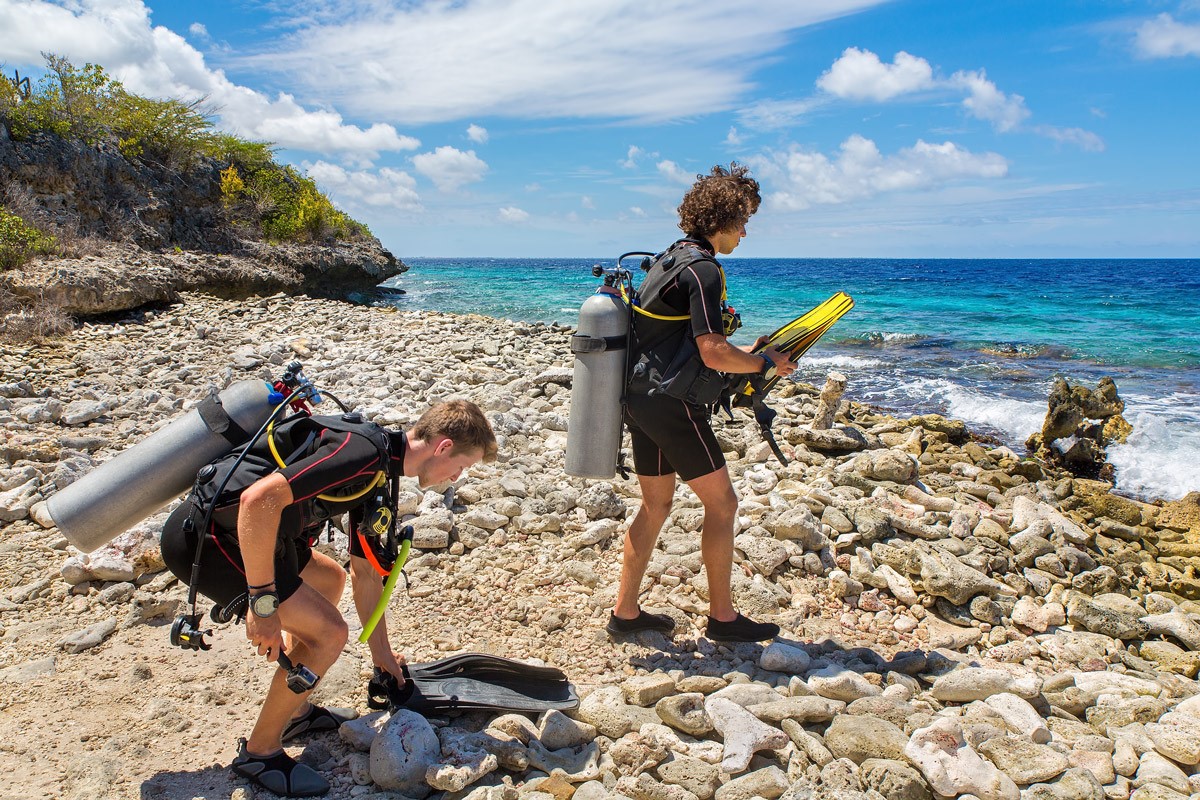
Boat diving means that dives are carried out from a boat. There are many different types of boats and the type of boat used will depend very much on the type of operation the dive centre runs, in conjunction with local dive sites and sea conditions.
Some boat examples are:
Day boat: A boat that you may go out all day from and not return to shore in between dives. These boats typically have a toilet, are larger and have some form of cold, wet or sunny weather protection and there may be areas inside and outside which are designated dry areas, where you may not enter in your dive kit or immediately after swimming. You will also likely have your drinks and lunch served on board. This is a very common type of boat found operating in the Egyptian Red Sea and they can frequently be quite spacious.
RIB - Rigid Inflatable Boat: This is a boat with a hard bottom and inflatable 'sides', similar to the smaller RNLI boats you may be familiar with. This boat will generally be used for single dives, going back to shore before you complete a second dive, though not always. It may be used in circumstances where the dive sites are not far away, or where the boat is launched through rough surf. It can be used in many different circumstances.
A 'Tender': This is a boat that will operate from a larger boat, such as a liveaboard boat. It is used to get you to the sites that the larger boat you are on may not be able to access due to the shallowness of the sites, or more bumpy conditions. A tender can be any style boat, and will often be in the local style of a particular country, or a small RIB.
Hard wet boat: The boat will have a rigid frame, such as fibreglass, but be 'open' to the seas, so there will be no dry areas and often no toilet, but usually some type of partial sun protection. It is unlikely you will spend all day on the boat, but rather do single or 2-tank dives in a long morning or afternoon.
13. What is a liveaboard?
A liveaboard is a holiday where your accommodation is on the boat. The boat moves from dive site to dive site and you sleep moored up 'at sea', or sometimes sleep when the boat is motoring overnight.
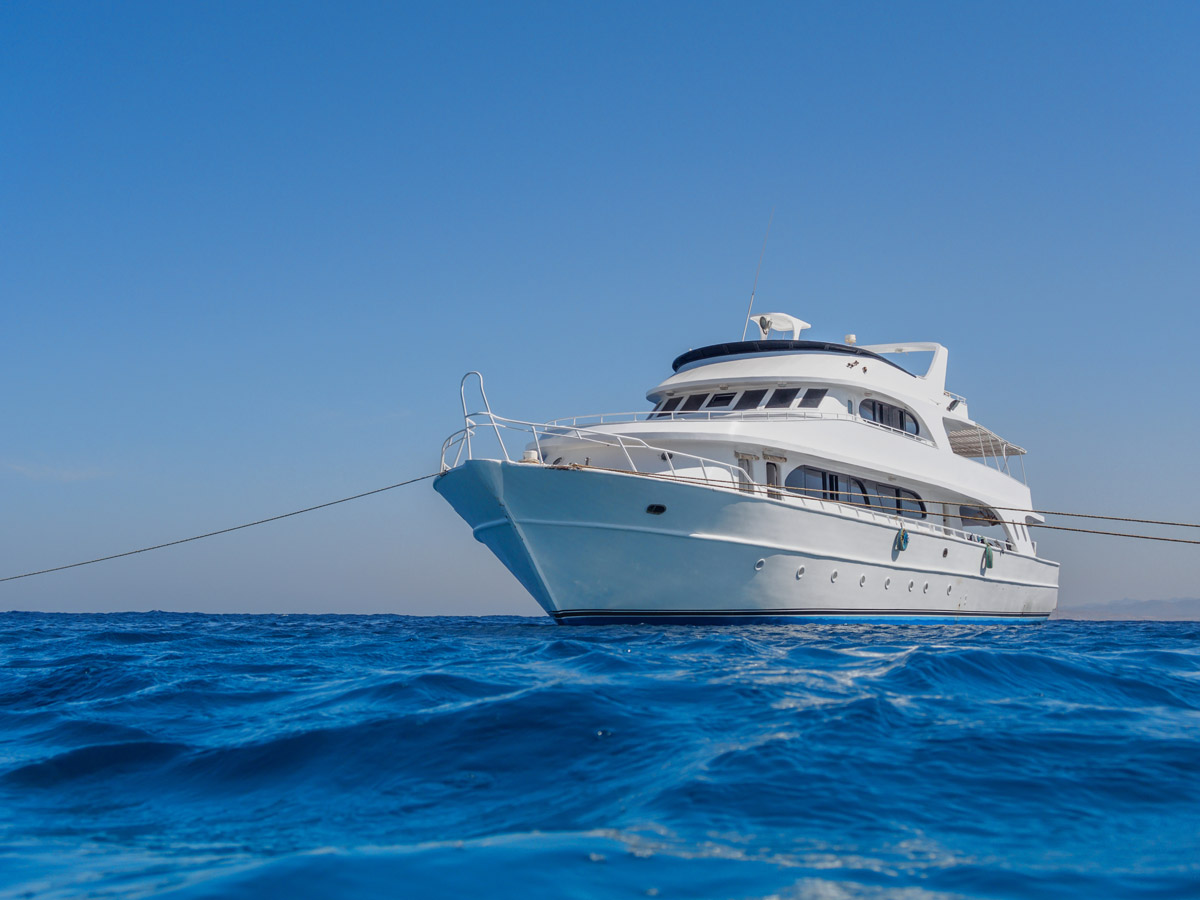
14. I have just qualified and want to do a liveaboard / dive some more 'challenging sites'
It is highly recommended, and in some cases local law, that divers have a minimum qualification and minimum number of dives to undertake some liveaboards or certain dive sites and itineraries. We liken it to passing your driving test; you can drive and you have learnt to drive safely, but would you spend the first 5 days going around the M25 without high risk of damaging yourself and someone else?
On a liveaboard, the diving atmosphere can at first be overwhelming, particularly if you are on board with a large group of experienced divers. You may also not have had adequate chance to test your 'sea legs', an important part of enjoyment of this type of holiday.
There are some dive boats that operate simple, yet nicely varied itineraries, in the northern Red Sea where Open Water divers, or equivalent, may join once they have a minimum of 15 logged dives. Otherwise, to get the most from this type of holiday or locations where the sites are more challenging: to keep you safe and to not inadvertently affect the holiday of others, a good general guideline is to have your PADI Advanced Open water qualification or equivalent and to aim for at least 30 dives, if not a few more, before throwing yourself in at the deep end!
15. I have a few dives now, and have done a little more training and want to book a liveaboard, but I am on my own. Do I get the cabin to myself?
Boat owner’s work out their costs based on 2 passengers in a twin/double cabin; this means you will need to pay for the other bed if you would like to guarantee the cabin to yourself. Otherwise, the cabin will be sold to 'strangers' on male/male share or female/female share. You may be lucky and end up as the odd number and get the cabin to yourself anyway, but unfortunately we have no influence over this! Many divers travel and go on holiday on their own; it is a great way to meet people. Your boat guide will pair you with another diver, and as best they can with someone of similar qualification, age or experience.
16. I am concerned about the environment and want to be a 'green' diver? What can I do?
The best way to achieve this is through education of the environment you are diving in and to improve your skills through further training and experience. All the diving agencies, such as BSAC and PADI, offer some excellent courses specifically for this.
Also, speak to the dive guides working in the places you visit. If they have been there a while or are from the area, they will be able to tell you about concerns specific to their areas and help you avoid making the problem inadvertently worse or showing you how you can help.
Another thing you can actively do to reduce your individual impact on the environment is to take part in our carbon offsetting scheme.
17. I want to do some more courses, but have not got time to do all the ones I think I need. Which one is the best one?
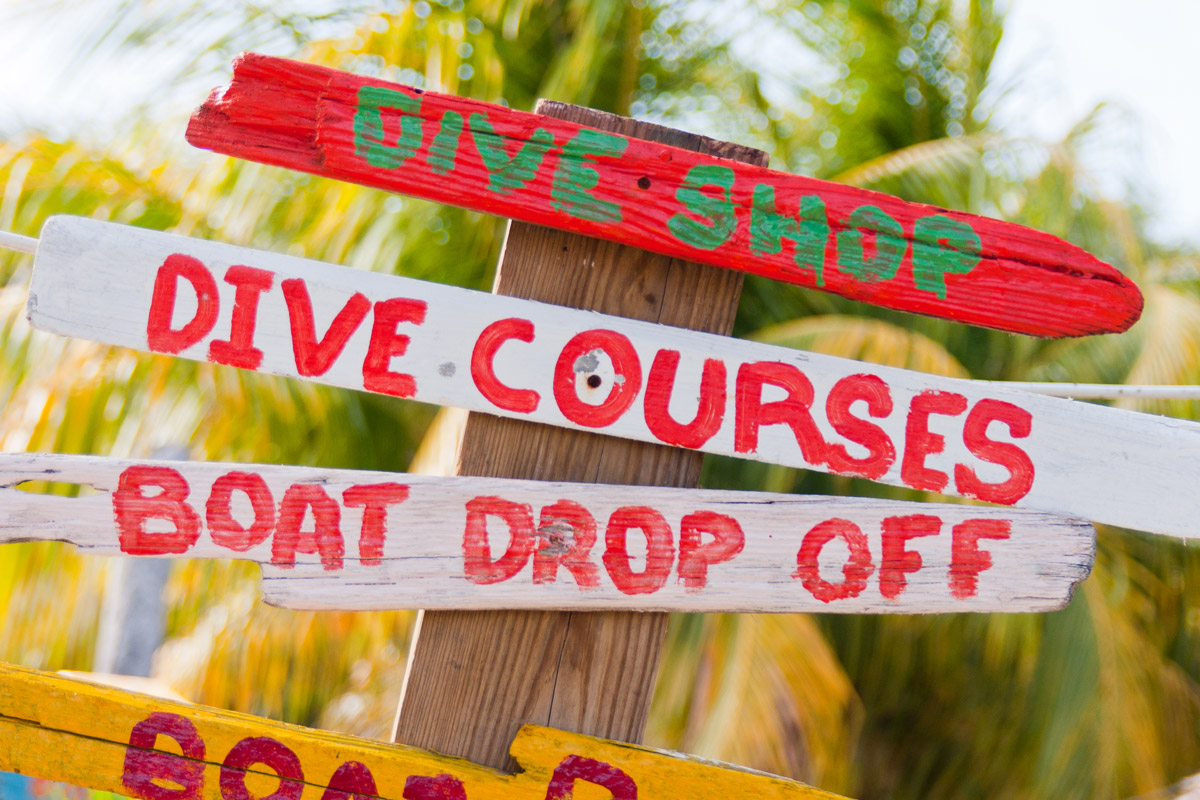
This will depend very much on what you would like to gain from your course, and where you will be doing it. For example, it may not be the best idea to carry out 'Boat Diver' speciality, in a resort where the majority of diving is shore based.
If you had to ask me to name one, that a newly qualified diver should aim for out of all the choices, I would say 'Peak Performance Buoyancy'; this course will pay dividends in ANY other course or diving that you do.
If you would like to talk over your diving holiday requirements then give us a call and we will be happy to offer advice and assist you in choosing the right holiday for your level of experience and requirements.
